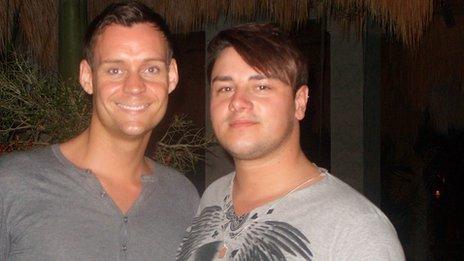Swansea Pride: More LGBT foster carers needed, event told
- Published
Gary Roberts and Adrian Shaw have fostered eight children over nine years
More lesbian, gay, bisexual and trans (LGBT) foster carers are needed, people attending Swansea Pride were told.
Swansea council wanted Saturday's event to break the myth that people who identify as LGBT cannot foster.
Partners Gary Roberts and Adrian Shaw, from Tonyrefail, Rhondda Cynon Taff, have fostered eight children together in the past nine years.
They said they had experienced "ups and downs" but their children made them feel "chuffed" and "proud".
They encouraged other same sex couples to come forward.
"There's no discrimination any more," said Mr Shaw. "They'll welcome you with open arms."
The couple, who have been together for 25 years, had never considered fostering until they realised a couple living nearby had been through the process.
"You didn't have any idea whatsoever that the children were not their own, after some chatting ourselves we were thinking 'that would be interesting to do'," he said.
But Mr Roberts was concerned their sexuality could be an issue.
He said: "We never ever thought two men could look after children and, more to the point, that a same sex couple could look after children. What would people say? What would be the views from kids at school? Neighbours?"
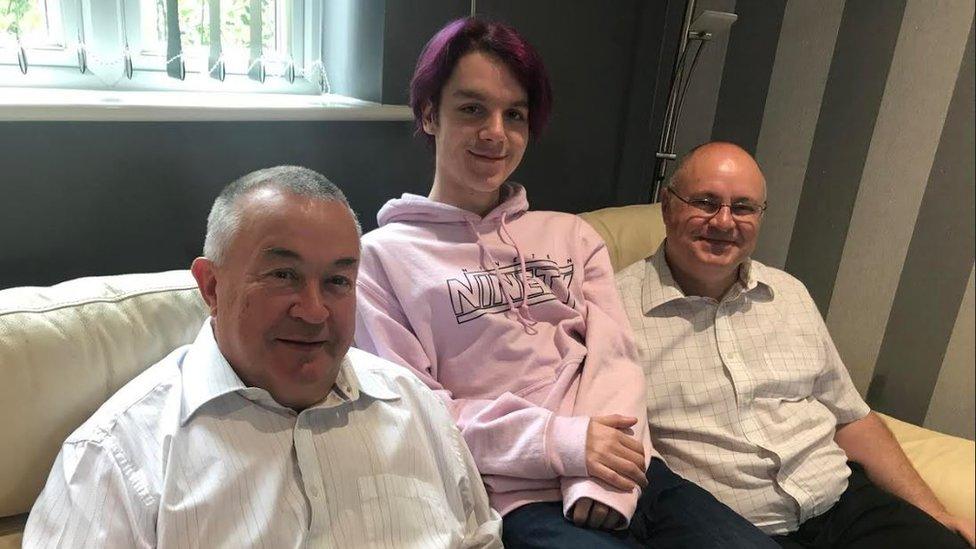
Martin Irving, 18, was fostered by Adrian Shaw (right) and his partner Gary Roberts (left) three years ago
After long discussions they decided to find out more and contacted fostering and adoption charity Tact.
The charity said it welcomes people from the LGBT community to foster and proactively goes out to recruit them.
"It is the love and security of a stable family environment that helps young people in care achieve their ambitions and potential," a spokeswoman said.
"Someone's sexuality, marital status, age and whether they own a home do not determine their suitability as a foster carer and, therefore, will not impact their fostering application."
The couple decided to go ahead but admit they found the application process hard.
"It was a very long drawn out process, very intrusive, they wanted to know the ins and outs of everything. It took about nine months to go to the panel for approval," said Mr Roberts.
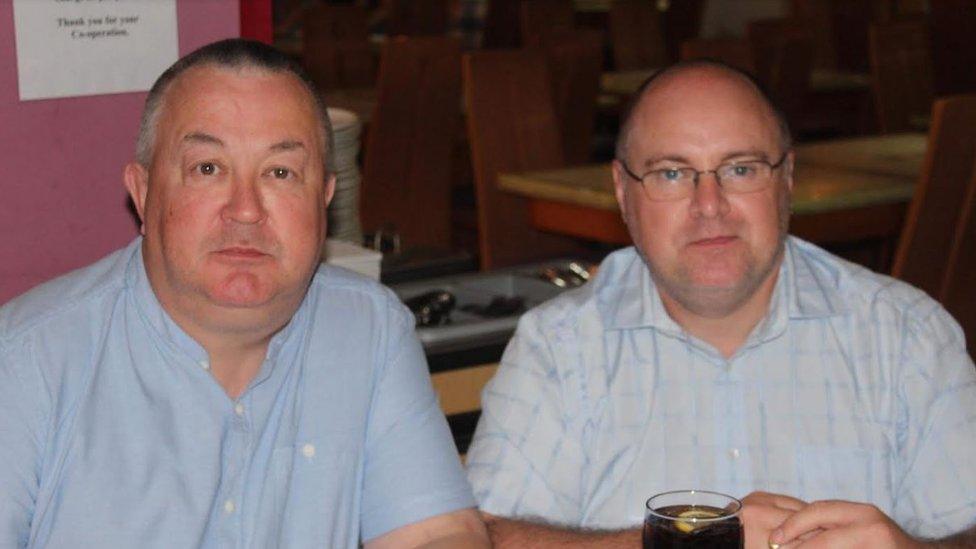
Swansea council is encourage people to consider fostering like Gary Roberts (left) and Adrian Shaw
Now they have been fostering for approaching a decade and, looking back, they have said they feel fortunate.
"We've had a good range of children, ones that have accepted us for what we are," said Mr Roberts.
He acknowledges fostering is a huge responsibility.
"Once you say yes, you don't want to be a let down because they've already been let down in life by family, etc. Do you want to let them down again?
"And you have to really try hard, and it is difficult on times and we've had our ups and downs. We've had the screams.
"We've had one little boy who tried to burn the house down," recalled Mr Shaw.
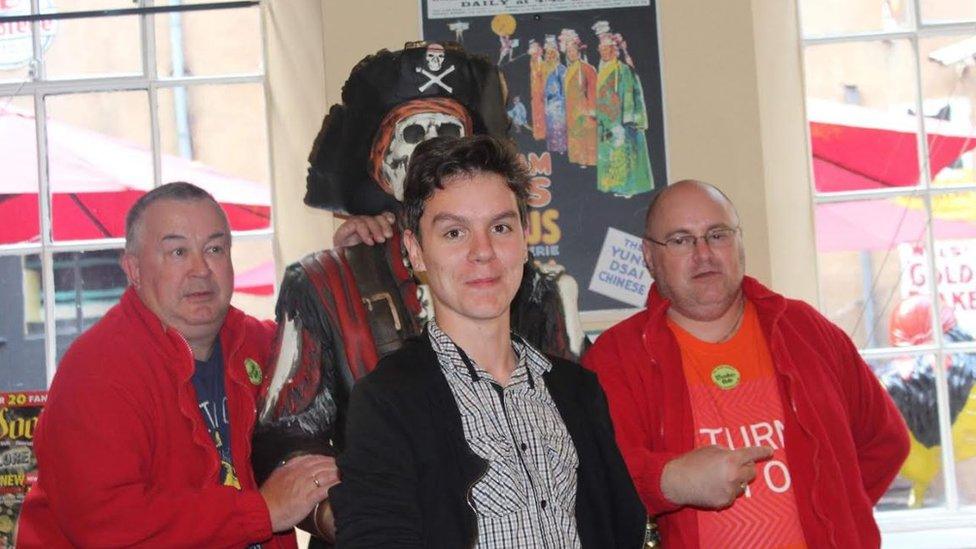
Martin Irving went to live with the couple when he was 15
But there have also been wonderful moments.
"One of my fondest memories was when one of our foster children went to his prom," said Mr Shaw.
"We went looking for his suit which went from a £100 suit to a £400 suit.
"I've got to admit it did bring a tear to my eye when we saw him with all his friends. That's one of my proudest moments."
He said he had pleasure from knowing the children they care for feel like part of the family.
"It's nice sometimes when you hear them turn round and say 'my dad'. And you hear that often with the children. It just shows how settled they are."
'Much happier'
Martin Irving, 18, was fostered by the couple three years ago and he still lives with them under a When I am Ready, external arrangement where a young person in foster care remains with their former foster carer beyond the age of 18.
And he credits the couple with turning his life around.
"They accepted me for who I was," he said. "I have more confidence in my life now, I'm much happier here than I've ever been."
Mr Irving said it has made him consider fostering in the future.
"I've experienced the impact of it."
- Published5 May 2018
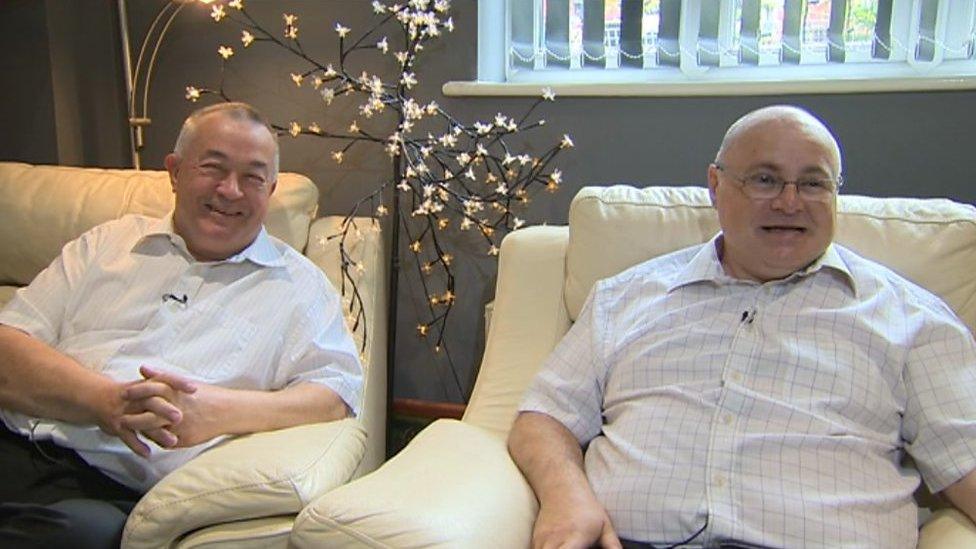
- Published31 January 2018
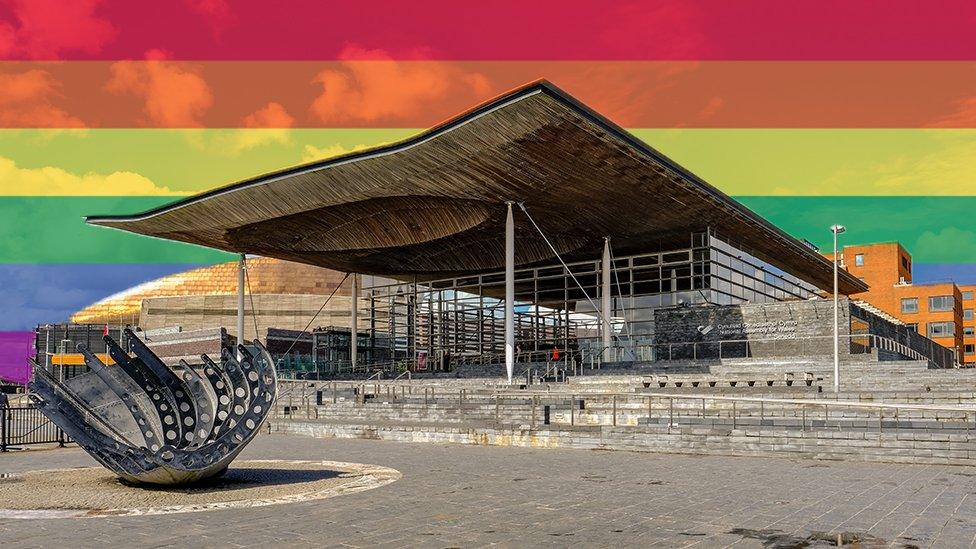
- Published6 April 2017
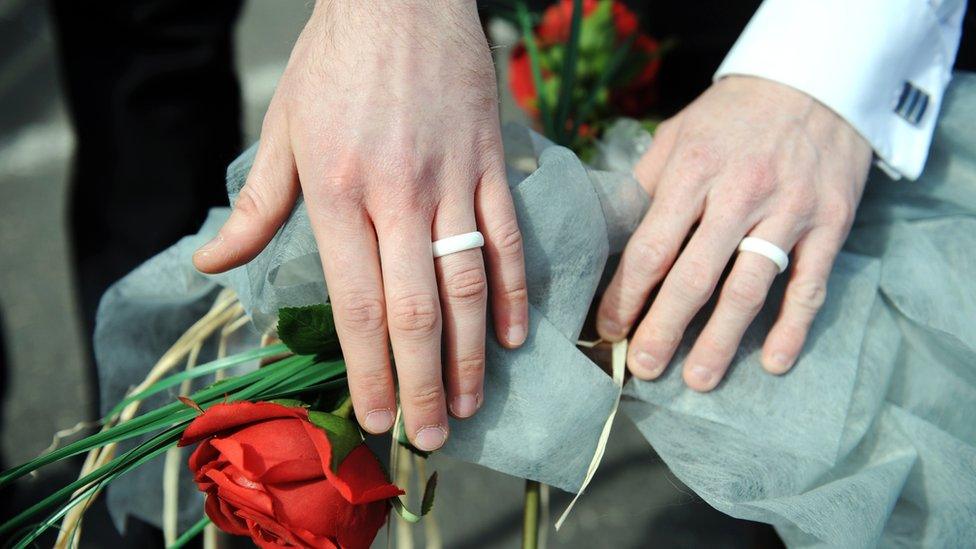
- Published22 February 2012
